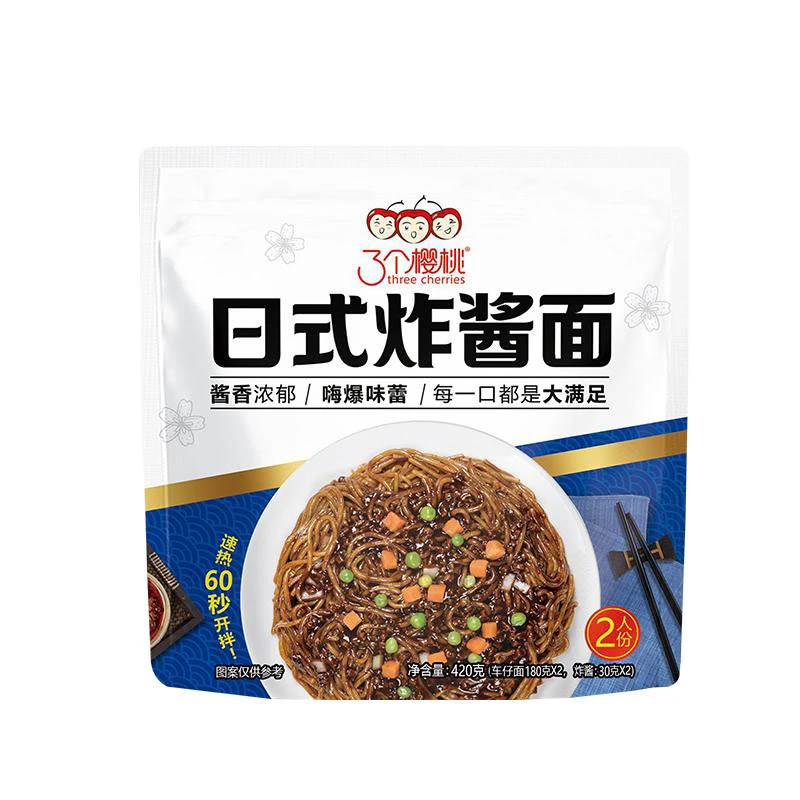what type of noodles can diabetics eat
What Type of Noodles Can Diabetics Eat?
Managing diabetes involves careful attention to diet, particularly carbohydrate intake. Noodles, a staple in many cuisines around the world, can present a challenge for those looking to maintain stable blood glucose levels. However, with the right choices, it is possible to enjoy noodles without compromising health.
Understanding Carbohydrates
Before diving into which types of noodles are suitable for diabetics, it's important to understand how carbohydrates affect blood sugar levels. Carbohydrates are broken down into glucose, which can cause spikes in blood sugar if not managed properly. Therefore, the type of carbohydrate consumed and its glycemic index (GI) are crucial considerations for diabetics.
The glycemic index measures how quickly certain foods raise blood glucose levels. Foods with a high GI are digested quickly and can lead to rapid spikes in blood sugar, while low-GI foods are digested more slowly, leading to a more gradual increase in blood sugar.
Types of Noodles Suitable for Diabetics
1. Whole Wheat Noodles Whole wheat pasta is a great option for diabetics. Made from whole grain flour, it has a higher fiber content than regular white pasta. This fiber slows down the absorption of glucose, helping to maintain more stable blood sugar levels.
2. High-Fiber Noodles Noodles enriched with fiber are increasingly available in grocery stores. These noodles can help lower the overall glycemic load of a meal. Look for options that have added fibers like chicory root or those made from whole grains.
3. Legume-Based Noodles Noodles made from lentils, chickpeas, or black beans are not only high in protein but also rich in fiber. These noodles are often lower in carbohydrates than traditional pasta options and have a low glycemic index, making them suitable for diabetics.
4. Shirataki Noodles Also known as miracle noodles, shirataki noodles are made from the konjac yam. They contain very few calories and carbohydrates, making them an excellent option for diabetics. They do have a unique texture, which may require some getting used to, but they readily absorb flavors from sauces and seasonings.
what type of noodles can diabetics eat

5. Zucchini Noodles (Zoodles) For those looking for a low-carb alternative, zucchini noodles are an excellent choice. Spiralized zucchini can mimic the shape and appearance of traditional pasta but contains significantly fewer carbohydrates. Additionally, they are low in calories and high in nutrients.
6. Rice Noodles While typically higher in carbohydrates than some other options, rice noodles have a moderate GI. Choosing brown rice noodles, which contain more fiber than their white counterparts, can make them a better choice for diabetics.
Tips for Incorporating Noodles into a Diabetic Diet
- Portion Control Regardless of the type of noodles chosen, portion control is essential. Eating larger servings can lead to increased blood sugar levels, so it's important to adhere to recommended serving sizes.
- Pair with Protein and Vegetables Balancing noodles with lean proteins (such as chicken, turkey, or tofu) and plenty of non-starchy vegetables can help moderate the glycemic impact of the meal. This combination can improve satiety and provide essential nutrients.
- Avoid Sugary Sauces Many pasta sauces can be high in sugar and can negate the benefits of using lower-GI noodles. Opt for homemade sauces using fresh tomatoes, herbs, and spices, or choose store-bought sauces with no added sugars.
- Monitor Blood Sugar Levels It’s vital for diabetics to monitor their blood sugar levels regularly, especially after trying new foods. This will help identify which noodle types work best for individual dietary needs.
Conclusion
While noodles may seem off-limits for those managing diabetes, there are numerous options available that can be both satisfying and safe. By choosing whole grain, high-fiber, or low-carb alternatives, and being mindful about portion sizes and accompaniments, diabetics can enjoy their favorite noodle dishes without compromising their health. Always consult with a healthcare provider or dietitian for personalized advice tailored to individual health needs.
-
The Wholesome Delight of Organic NoodlesNewsAug.15,2025
-
The Vibrant Delight of Spinach NoodlesNewsAug.15,2025
-
Savor the Spicy Delight of Hot Pot NoodlesNewsAug.15,2025
-
Savor the Chill with Irresistible Cold NoodlesNewsAug.15,2025
-
Indulge in the Authentic Delight of Udon NoodlesNewsAug.15,2025
-
Dive into the Delicious World of Cart NoodlesNewsAug.15,2025
-
Unlock the Delicious Potential of Yam NoodlesNewsAug.11,2025
Browse qua the following product new the we







